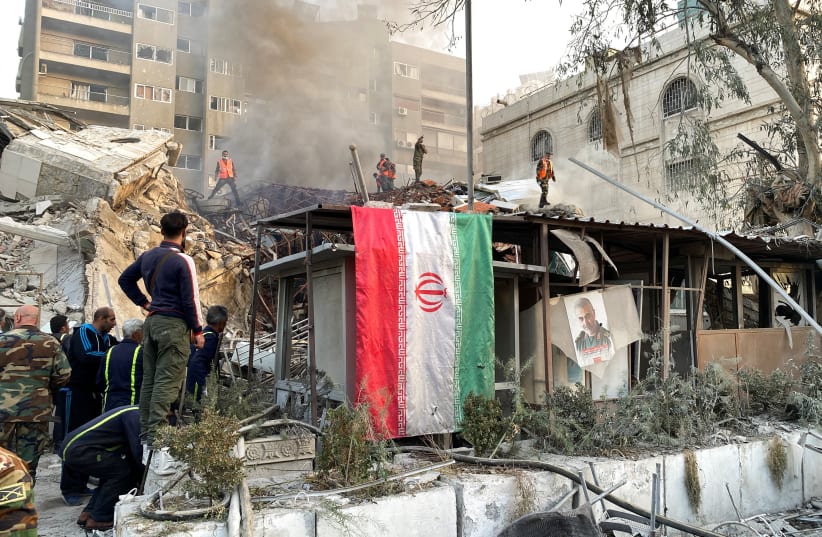ALWAGHT- The Zionist regime of Israel crossed another red line by attacking the Iranian diplomatic compound. From Iran's perspective and that of many other governments, attacking this compound is akin to attacking Iran's territory. This attack likely indicates that the Israeli government believes that now is the time to act against Iran's military objectives, whatever they may be, and that they can relatively escape the consequences of such actions.
Israel's perception was that by targeting the Iranian consulate in Syria, Iran's response would be too restrained to spark a regional conflict. According to Israel, the Gaza conflict not only hasn't restricted its strategic options against Iran and its allies, but has actually broadened them. If this assessment holds true, Israelis might have underestimated the volatile nature of the current regional dynamics. This attack could validate a miscalculation, potentially leading to perilous outcomes not only for the Zionist regime but for the entire region.
Israel playing a risky game
Over time, Israel's strategies in targeting the operational and intelligence leaders of the Iranian network, including an increasing number of senior military figures in Iran, have evolved. Notably, the recent attack follows the same pattern seen in Israel's strikes on significant Iranian assets in Syria and elsewhere in recent months.
After Hamas' attack on October 7th, Israel could have opted to limit its broader regional campaign against Iran and concentrate on immediate threats stemming from Gaza. However, it seems that Netanyahu and his emergency military cabinet have taken a different course. Six months into the Gaza war, Israel is ramping up its regional campaign, a move that aligns with the logic behind Naftali Bennett's "eight-legged doctrine" from 2018. Israel believes direct confrontation with Iran is necessary, rather than relying solely on proxy forces.
While some analysts suggest that Israel aims to provoke Iran into war, it's plausible that the opposite rationale holds true. Israel may be banking on the idea that Iran feels constrained and boxed in.
The Zionist regime underestimating Iran
In Israel, there is a prevailing narrative regarding General Soleimani's assassination, with one viewpoint suggesting it revealed Iran's vulnerability, while an opposing interpretation posits that his martyrdom actually escalated aggression and threats against Israel and the United States. Despite General Soleimani's martyrdom, the extensive capabilities demonstrated by Iran-backed proxy groups in recent years indicate that his absence hasn't significantly weakened their capacity to cause substantial harm across the region.
Israel perceives itself as facing minimal constraints in its endeavors to undermine Iran and its proxies, leading it to take considerable risks. Iran's government may feel compelled to directly retaliate at some point, as it confronts mounting domestic pressure. While Israel may view these risks as manageable, the growing sense of impunity poses not only a threat to Israel but also a perilous prospect that could directly endanger American interests.
Israeli leaders, both prior to and following the Gaza conflict, have operated under the assumption that engaging with Iran could be kept limited, enabling Israel to pursue its objectives of destabilizing the Iranian sphere while concurrently enhancing relations with Arab nations wary of Iran. However, this assumption was proven incorrect even before the Gaza conflict. Despite this, Israel persists in its risky actions amidst the relentless assault on Gaza and the incomprehensible scale of civilian casualties. There is a risk that Israel may face a heavier toll than anticipated for these attacks, and in such a scenario, America may also suffer significant consequences.



























